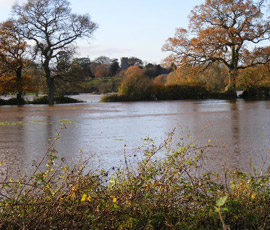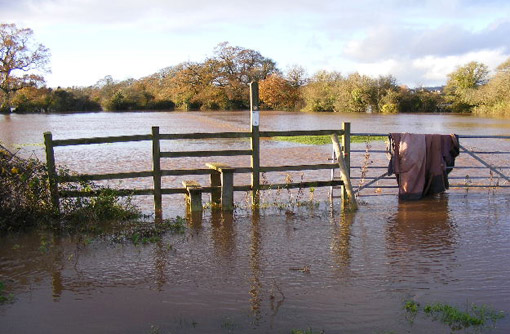Wind and rain lash West Country farms

Torrential rain has caused widespread flooding across the West Country, with 64mm of rain falling in 36 hours near Exeter, Devon.
With already saturated fields, surface run-off caused tremendous problems on main and rural roads, with many farms and villages becoming cut off and vehicles having to be abandoned.
“I have never known so many flood warnings to be in place at one time,” said Paul Gainey, spokesman for the Environment Agency. At its peak, there were 56 flood warnings for the South West, and with more rain forecast today (22 November), the situation was likely to get worse. “The catchments are already saturated, rivers are swollen, and reservoirs are full. Any more rain really won’t be helpful.”
Surprisingly, only a few rivers had burst their banks, with a handful of properties being flooded so far, said Mr Gainey. “It’s more about the surface water and travel disruption that has caused.” However, in Tiverton the Grand Western Canal had breached its banks, with massive holes spilling tens of thousands of gallons of water across neighbouring farmland.
“A lot of farmers haven’t got the storage to keep slurry over the whole winter – in Nitrate Vulnerable Zones it is going to be a huge problem. And there are going to be massive operational difficulties carrying out any kind of fieldwork now.”
Ian Johnson, NFU spokesman
Helen Chivers, spokeswoman for the Met Office, said another 20mm of rain was expected to fall today, with 40-45mm likely on higher ground. “A lot of that will come in a very short period of time, and with 50-70mph winds the impact could be quite sharp.”

Emergency services had been on high alert, rescuing people from abandoned vehicles and floodwater, including farmers who were trying to evacuate livestock from flooded fields.
However, Cornish Mutual had only had a few flooding claims in so far, said marketing manager Melissa Ward. “These things tend to filter through quite slowly – but we are expecting more storm and flood damage to come.” She advised people at risk of flooding to move possessions upstairs and to use sandbags to protect their property as much as possible.
A longer-term problem was the effect of high rainfall on farmers’ slurry storage capacity, with more animals having to be housed earlier than normal, said NFU spokesman Ian Johnson. “A lot of farmers haven’t got the storage to keep slurry over the whole winter – in Nitrate Vulnerable Zones it is going to be a huge problem. And there are going to be massive operational difficulties carrying out any kind of fieldwork now.”
For photos visit our wet weather gallery
